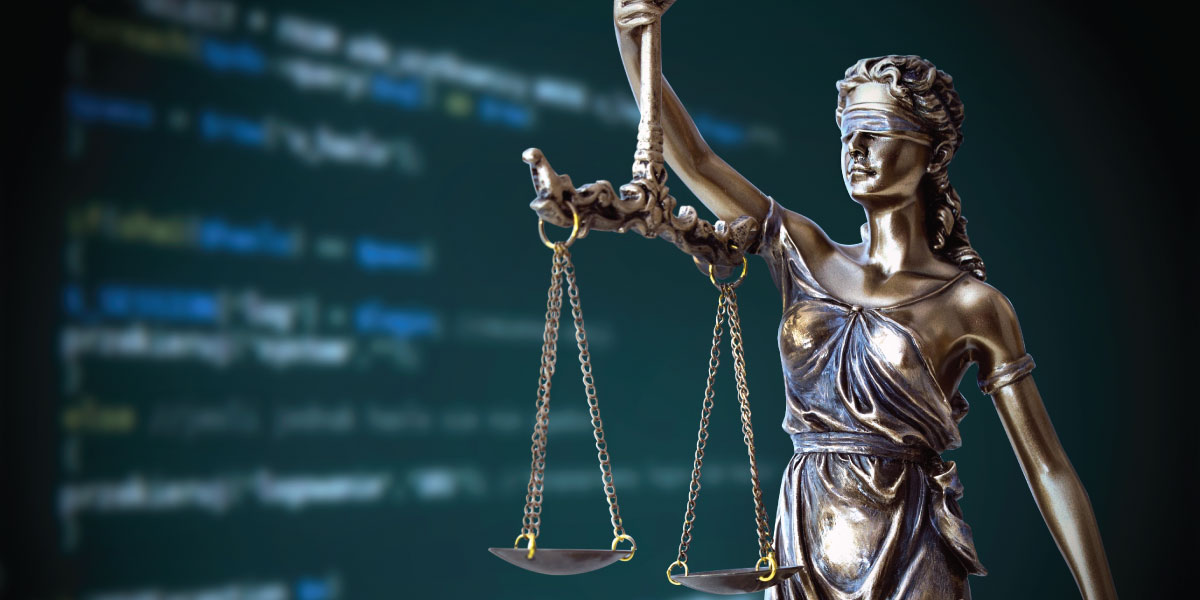Blockchain in Law: Decentralizing the Legal Industry
Like many industries in the past few decades, the legal industry has been greatly impacted by the advancements in technology. Many legal firms are overwhelmed by mounds of paperwork. A lot of work must go into keeping records accurate and up to date. How can blockchain help? Blockchain allows law firms a higher level of accuracy in their record keeping.
What is Blockchain?
Blockchain is a type of Distributed Ledger Technology (DLT). Many tech leaders believe that blockchain could change industries like the financial sector and legal firms. This is because blockchain makes record-keeping more efficient, resilient, and reliable. Blockchain allows legal firms to share and edit documents with multiple people at once. A shared document is not a copy or transfer of the original document; it is the same document existing in an online format where multiple people can edit and view the document at the same time. While much simpler and less complicated for the users, Google Docs has a similar premises to Blockchain. Both allow users to see up-to-date changes on a shared document and allow multiple users to access the document at the same time. Blockchain is much more secure than Google Docs and is virtually unhackable. This means that legal documents are safe to be housed and shared on blockchain.
What can it be used for?
Blockchains have many different uses for law firms. Here are just a few examples:
- Smart Contracts
- Smart contracts are blockchain’s version of traditional contracts. They are autonomous, auto sufficient, decentralized, and used by the legal industry to deploy contracts to people like property management and other possible clients. Despite being autonomous, smart contracts still require a lawyer to start the process by writing the terms of agreement.
- Dispute Resolution
- Disputes are often costly and there is always the worry of bias from those presiding over the dispute. Blockchain allows law firms to settle debates without the fear of bias or taking a lot of time and money to settle. Through blockchain, a group of jurors are randomly selected to focus on the case and decide the results.
- Document Notarization
- Blockchains allow documents to be authenticated and have the signature verified with timestamps and hashes. This speeds up the notarization process and removes room for human error.
- Intellectual Property Rights
- Blockchain cannot prevent the unauthorized use of copyrighted materials, it can help lawyers set up legal cases on behalf of their clients whose work has been infringed upon. Blockchain can help set up evidence of first use, creation, and rights management.
 Blockchain can help law firms manage paperwork.
Blockchain can help law firms manage paperwork.
- Land Registries and Property Deeds
- Blockchain can allow people to buy property in real-time without the long wait for contracts and paperwork to be approved. Many governments and law firms are now using blockchain to track property records in a secure and organized format.
- Digital Wallets
- Digital wallets are becoming more popular every year. With blockchains and smart contracts digital wallets and payments can be made more securely. Since blockchains cannot be hacked, there is little risk in transferring money through them.
The world is becoming more digital each day. The legal industry is one of the oldest in the world, but that does not make it exempt from the changes technology brings. While there may be a learning curve to blockchain, the benefits it brings is something that law firms should look into incorporating into their systems. From the security to the ease of communicating online, blockchain offers law firms a chance to break into the digital world and stay in contact with clients even when in-person contact is not possible.
Have more questions about blockchain? Visit our website today to learn more!